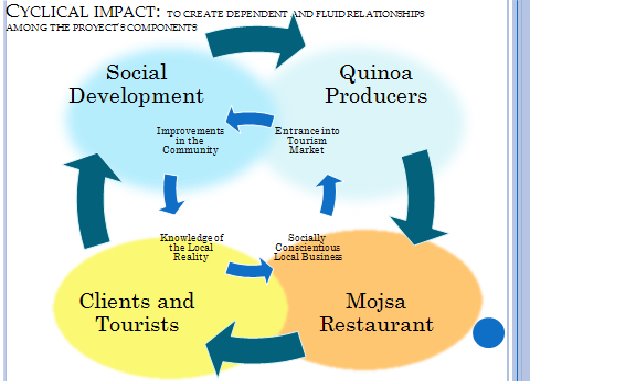As some of you know may already know, quinoa originates in the Andes. It contains high levels of protein, and is a great, healthy grain substitute to rice and pastas. If you enter a Whole Foods or other organic food store you will certainly see quinua. But look closely, and you will notice that the majority of quinoa comes from Bolivia. Samka's goal is to change this tendency and develop a fair trade, organic market on the Peruvian side of the border.
The project Samka is beginning with 18 quinoa producers who traditionally rely on both small local markets to sell their products and their family's consumption needs. Mojsa restaurant will serve as a primary, secure market, to ensure that the producers receive a a fair price for their quinoa in order to help them start off on the right foot.
Samka's project goals are:
- Work with farmers to develop organizational and production capacities in line with the democratic principals of Fair Trade, with which they will be able to achieve sustainable production of organic quinoa.
- Manage a data-base of the production and socio-economic conditions of the participants to understand the deficiencies and needs of both the local agricultural production as well as the local human condition. Use this information to support their business and communal development.
- Establish a stable market for quinoa and provide product and project information for visitors who are interested in the food and culture of Puno, Peru.
- Support quinoa’s revalidation as an important product of high nutritional value.
- Demonstrate the importance of sustainable, and socially conscientious approaches for development within the agricultural communities of Puno’s rural zone

No comments:
Post a Comment